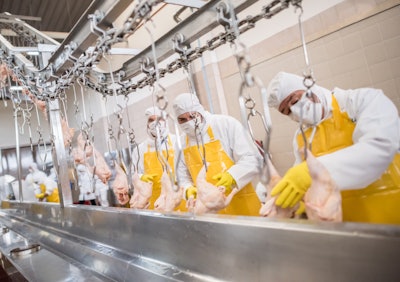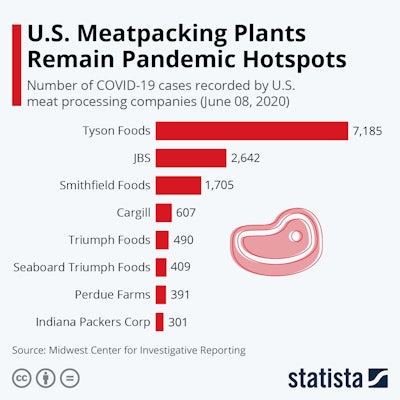
Numbers vary according to the source and date, but a June 22 Food & Environment Reporting Network article reports that at least 32,000 cases and 109 deaths among U.S. food-system workers* have been reported, a number it claims is likely low. (*Figures include approximately 2,800 farm workers.)
The meatpacking industry in the U.S. has been hit the hardest, with an estimated 249 plants being affected. Nebraska, Iowa and Kansas report the highest numbers of individual cases among meatpacking employees. Food processing plant outbreaks are estimated at 84, with Colorado, Washington and California reporting the highest number of affected facilities.
Facility outbreaks in Brazil, Canada, Australia, Ireland, Spain, Germany, France and the United Kingdom, have followed suit. According to a May 22 article by France 24, 949 of 2,000 employees at a Cargill beef processing plant in Alberta, Canada were infected, and two died. The BBC reports that of the 560 workers at a meat processing plant in Anglesey, United Kingdom, 158 have tested positive, leading to a plant closure and a delay of the June 29 re-opening of local schools.
What is it about the meat processing and packaging industries that make them so susceptible? The plant environment is highly conducive to the spread of coronavirus. Cold, damp, refrigerated facilities requiring workers to be in close proximity and to shout over loud machinery increases the spread of virus particles in the air. Some plants house workers in local dormitories, increasing the proximity and length of time they spend together. Also, migrant workers employed by the plants may not have benefits such as healthcare or sick pay to fall back on should they become ill. According to the Environmental Working Group, coronavirus infection rates in communities within 15 miles of meat plants are twice the national average.



























